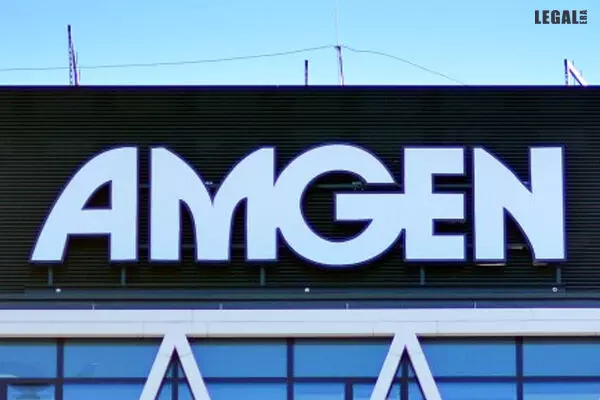- Home
- News
- Articles+
- Aerospace
- Artificial Intelligence
- Agriculture
- Alternate Dispute Resolution
- Arbitration & Mediation
- Banking and Finance
- Bankruptcy
- Book Review
- Bribery & Corruption
- Commercial Litigation
- Competition Law
- Conference Reports
- Consumer Products
- Contract
- Corporate Governance
- Corporate Law
- Covid-19
- Cryptocurrency
- Cybersecurity
- Data Protection
- Defence
- Digital Economy
- E-commerce
- Employment Law
- Energy and Natural Resources
- Entertainment and Sports Law
- Environmental Law
- Environmental, Social, and Governance
- Foreign Direct Investment
- Food and Beverage
- Gaming
- Health Care
- IBC Diaries
- In Focus
- Inclusion & Diversity
- Insurance Law
- Intellectual Property
- International Law
- IP & Tech Era
- Know the Law
- Labour Laws
- Law & Policy and Regulation
- Litigation
- Litigation Funding
- Manufacturing
- Mergers & Acquisitions
- NFTs
- Privacy
- Private Equity
- Project Finance
- Real Estate
- Risk and Compliance
- Student Corner
- Take On Board
- Tax
- Technology Media and Telecom
- Tributes
- Viewpoint
- Zoom In
- Law Firms
- In-House
- Rankings
- E-Magazine
- Legal Era TV
- Events
- Middle East
- Africa
- News
- Articles
- Aerospace
- Artificial Intelligence
- Agriculture
- Alternate Dispute Resolution
- Arbitration & Mediation
- Banking and Finance
- Bankruptcy
- Book Review
- Bribery & Corruption
- Commercial Litigation
- Competition Law
- Conference Reports
- Consumer Products
- Contract
- Corporate Governance
- Corporate Law
- Covid-19
- Cryptocurrency
- Cybersecurity
- Data Protection
- Defence
- Digital Economy
- E-commerce
- Employment Law
- Energy and Natural Resources
- Entertainment and Sports Law
- Environmental Law
- Environmental, Social, and Governance
- Foreign Direct Investment
- Food and Beverage
- Gaming
- Health Care
- IBC Diaries
- In Focus
- Inclusion & Diversity
- Insurance Law
- Intellectual Property
- International Law
- IP & Tech Era
- Know the Law
- Labour Laws
- Law & Policy and Regulation
- Litigation
- Litigation Funding
- Manufacturing
- Mergers & Acquisitions
- NFTs
- Privacy
- Private Equity
- Project Finance
- Real Estate
- Risk and Compliance
- Student Corner
- Take On Board
- Tax
- Technology Media and Telecom
- Tributes
- Viewpoint
- Zoom In
- Law Firms
- In-House
- Rankings
- E-Magazine
- Legal Era TV
- Events
- Middle East
- Africa
Sanofi Wins at U.S. Supreme Court Patent Dispute with Amgen: ‘Patent Claims Go Beyond What It Invented’

Sanofi Wins at U.S. Supreme Court Patent Dispute with Amgen: ‘Patent Claims Go Beyond What It Invented’
The U.S. Supreme Court nine Justices voted unanimously upheld the lower Court ruling invalidated two Amgen Inc. patents, and affirmed the narrow scope of a patent law requirement known as ‘enablement’, allowing more pharmaceutical companies to keep competing in the same areas of research and development.
The justices upheld a lower court ruling invalidating two Amgen patents covering its drug Repatha, which reduces LDL (“bad”) cholesterol levels. The opinion by Justice Neil Gorsuch cemented decades of precedent around the patent enablement standard laid out in the Patent Act.
The justices cited cases decided between 1854 and 1928 that lay out how the enablement standard should work, ranging in subject matter.
The Court extensively deliberated on the legal requirement of “enablement,” which dictates that a patent must contain enough detail to allow a person of ordinary skill in the relevant trade to make or use an invention without “undue” trial and error. The law is meant to ensure inventions truly advance their fields. Since no patent lasts forever, inventions must be clearly described so that others can make and use them once they lose exclusivity.
The cases dates back to 2014, when Amgen first sued Sanofi and Regeneron for allegedly treading on Amgen intellectual property with their rival PCSK9 drug Praluent, under development at the time as alirocumab.
In 2019, a judge had ruled that certain claims of two Amgen patents covering Repatha were invalid.
Thereafter, Amgen filed an appeal before the Federal Appeals Court.
The Federal Appeals Court had sided with Sanofi and Regeneron Pharmaceuticals Inc. in their dispute with Amgen over cholesterol drugs by adhering to a strict reading of US patent law and clarifying how specific a patent must be to be valid.
Aggrieved by the same, the Amgen finally approached the U.S. Supreme Court to hear the case in November.
Amgen had argued that the Court ought to back broader protections on antibody drugs like Repatha, suggesting that without those intellectual property bulwarks, me-too drugs can emerge with minor changes to successful meds without committing the same resources to research.
On the contrary, Sanofi and Regeneron retaliated that letting Amgen’s Repatha patents stand could allow companies to deflect entire classes of rival drugs by claiming overly broad protections.
The Supreme Court remarked that Amgen had failed to provide enough detail to recreate the full scope of its claimed invention.
Thus, while agreeing with Sanofi and Regeneron, the Supreme Court noted that, Amgen was set to monopolize an entire class of things defined by their function—every antibody that both binds to particular areas of the sweet spot of PCSK9 and blocks PCSK9 from binding to LDL receptors.
The Justices in their unanimous opinion wrote, “The record reflects that this class of antibodies does not include just the 26 that Amgen has described by their amino acid sequences, but a ‘vast’ number of additional antibodies that it has not.”



